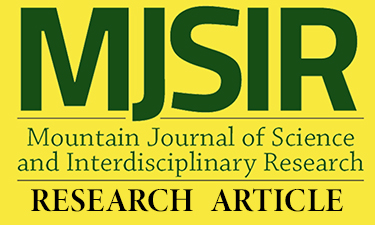Exploring the Gap between Framework and Practice: A Student-Teaching Experience of the Secondary Mathematics Pre-Service Teachers
Main Article Content
Abstract
Educators and researchers stress the importance of student teaching in teacher preparation since the pre-service teachers are given the opportunity and the challenge to put into practice the different concepts and theories they acquired from their academic courses under the guidance of a professional teacher. The study was conducted to assess the student teaching experiences of the secondary mathematics pre-service teachers (SMPTs). The study used an explanatory design model, which is a mixture of quantitative and qualitative approaches. The quantitative approach involved the analysis of the actual teaching ratings and comments/suggestions given by the mentoring teachers of the SMPTs, while the qualitative approach involved the conduct of a one-on-one interview to purposively chosen participants to support the quantitative results. The study involved 73 graduating SMPTs from seven selected public and private Teacher Education Institutions (TEIs) in the Cordillera Administrative Region (CAR). The results indicate the strengths of the SMPTs as well as their shortcomings and challenges during their student-teaching experience. For instance, classroom management, teaching without the supervision of a cooperating teacher and impromptu teaching were among the problems that emerged in the duration of their student- teaching. These results are important in the improvement of the secondary mathematics teachers' preparation program, particularly in their student teaching experience.
Article Details
References
Chamoso, J.M., Caceres, M.J., & Azcarate, P. (2012). Reflection on the teaching-learning process in the initial training of teachers. Characterization of the issues on which pre-service mathematics teachers reflect. Teaching and Teacher Education, 28: 154-164.
Cheng, E. (2011). How lesson study develops pre-service teachers’ instructional design competency? The International Journal of Research and Review, 7(1): 67-79.
Commission on Higher Education (CHED). (2004). CHED Memorandum Order No. 30, series of 2004. Revised Policies and Standards for Undergraduate Teacher Education Curriculum.
Commission on Higher Education (CHED). (2007). CHED Memorandum Order No. 52, series of 2007. Addendum to CMO 30, Series of 2004 Entitled "Revised Policies and Standards for Undergraduate Teacher education Curriculum".
Department of Education (DepEd). (2017). DepEd Order No. 42 series of 2017. Philippine Professional Standards for Teachers.
Framework for Philippine Mathematics Teacher Education. (2011). Department of Science and Technology – Science Education Institute (DOST- SEI), Republic of the Philippines and Philippine Council of Mathematics Teacher Education (MATHTED), Inc.
Gursoy, E. (2013). Improving practicum for a better teacher training. Procedia-Social and Behavioral Sciences, 93: 420-425. Presented in the 3rd World Conference on Learning, Teaching and Educational Leadership.
Harbin, J., & Newton, J. (2013). Do perception and practices align? Case studies in intermediate elementary mathematics. Education Journal, 133 (4): 58-543.
Kaskaya, A., Unlu, I., Akar, M.S., & Ozturan, S.M. (2011). The effects of school and teacher themed movies on pre-service teachers' professional attitudes and perceived self-efficacy. Educational Sciences: Theory & Practice, 11(4): 1778-1783.
Lee, J., Tice, K., Collins, D., Brown, A., Smith, C., & Fox, J. (2012). Assessing student teaching experiences: teacher candidates’ perception of preparedness. Educational Research Quarterly, 36(2): 3-20.
Memnun, D.S., & Hart, L.C. (2014). Beliefs about mathematics: what are the differences in u.s. and turkish pre-service teachers? International Journal of Academic Research Part B, 6(1): 436-442.
Ozgen, K., & Alkan, H. (2014). An investigation of pre-service mathematics teachers' skills in the development of activities. Educational Sciences: Theory and Practice, 14(3). 1193-1201.
Rosas, C., & West, M. (2011). Pre-service teachers perception and beliefs of readiness to teach mathematics. Current Issues in Education. Mary Lou Fulton Teachers College, Arizona State University.
Rossi, A.J., & Lisahunter (2013). Professional spaces for pre-service teachers: Sites of reality, imagination and resistance. Educational Review, 65(2): 123-139.
Rots, I., & Aelterman, A. (2009). Teacher education graduates’ entrance into the teaching profession: Development and test of a model. European Journal of Psychology of Education, 24(4): 453-471.
Sanchez, M. (2011). A review of research trends in mathematics education. PNA, 5(4): 129-145.
Sirmaci, N. (2010). Pre-service teachers’ views on school experience and teaching practice courses. Procedia-Social and Behavioral Sciences, 9: 649-658.
Strawhecker, J. (2005). Preparing elementary teachers to teach mathematics: How field experiences impact pedagogical content knowledge. Issues in Undergraduate Mathematics Preparation of School Teachers, 4: 1-12.
Tondeur, J., Braak, J.V., Sang, G., Voogt, J., Fisser, P., & Leftwich, A.O. (2011). Preparing pre-service teachers to integrate technology in education: A synthesis of qualitative evidence. Computer and Education, 59(1): 134-144.

